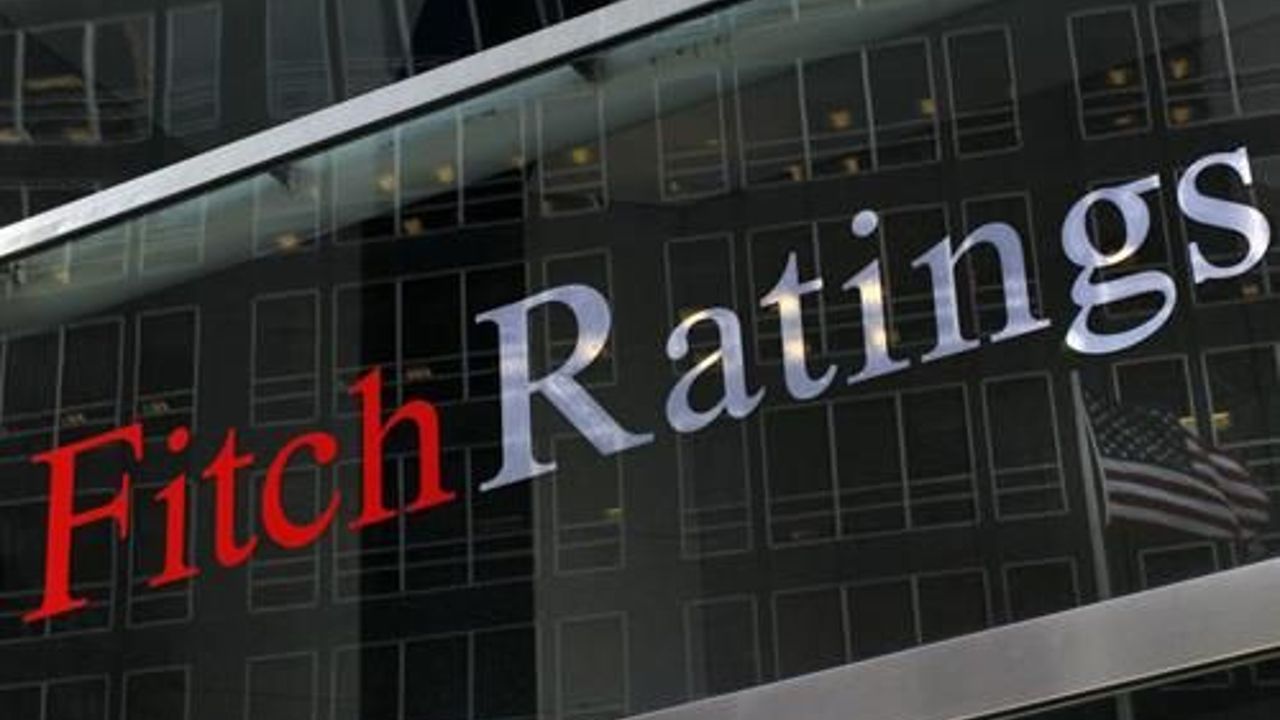Fitch cautions Turkey for challenging second half of 2014
Business |
Economic rebalancing of Turkey may become more challenging in second half of 2014 , Fitch says.

Font Size:
Economic rebalancing observed in Turkeys economy in the first half of the year might encounter difficulties in the forthcoming second half, Fitch Ratings said in a statement released on its website on Thursday.
Fitch stated that thanks to the sharp interest rate hikes in late January and the additional precautions in suppressing credit growth, Turkey managed to contain high credit growth which encourages private consumption and increases household debt. The recent interest rates cuts from the Central Bank, however, may slow down the reduction of credit growth in the forthcoming period.
In late January 2014, the Central Bank of Turkey introduced sharp interest rate hikes to prevent a slide in value of the Turkish Lira and slow the credit growth since credits act as an encouraging tool for individuals' private consumption while increasing household debt rather than encouraging investments.
However, the Central Bank of Turkey has slashed the interest rates by 0.5 percent, 0.75 percent and 0.50 percent in its May, June and July monetary policy meetings, respectively.
Monetary policy settings which have loosened during the fragile Eurozone recovery and heightened geopolitical risk since May could slow down the current account adjustment. Fitch said in the statement.
Fitch stressed that compared to 2013, the annual credit growth dropped by 50 percent but pointed out the pace of decline in credit growth started to slow down recently.
The pace of decline has slowed, while further rate cuts could easily reverse the trend. Central Bank of the Republic of Turkey research shows the current account is particularly sensitive to credit growth. the statement said.
We forecast a slower improvement in the current account deficit (CAD) in 2015 to 5.7 percent of GDP from a forecast of 6.2 percent in 2014, and note that the quality of external financing remains poor, with almost 70 percent still funded by portfolio and unidentified capital inflows in first half of 2014.
Despite the Central Bank of Turkey's interest rate cuts keeping inflation on an upward trend, Fitch estimated that the pressure of government officials on the Central Bank administration will be intensified in the forthcoming period after a weaker-than-expected second quarter growth figures.
Interest rates have been a matter of debate in Turkey for some time since the Central Bank of Turkey insisted on maintaining high interest rates until clear signs of an improvement in the inflation outlook materialized. Government officials, however, blame the banks high interest rates policy as a suppressing factor for growth.
Fitch stated that thanks to the sharp interest rate hikes in late January and the additional precautions in suppressing credit growth, Turkey managed to contain high credit growth which encourages private consumption and increases household debt. The recent interest rates cuts from the Central Bank, however, may slow down the reduction of credit growth in the forthcoming period.
In late January 2014, the Central Bank of Turkey introduced sharp interest rate hikes to prevent a slide in value of the Turkish Lira and slow the credit growth since credits act as an encouraging tool for individuals' private consumption while increasing household debt rather than encouraging investments.
However, the Central Bank of Turkey has slashed the interest rates by 0.5 percent, 0.75 percent and 0.50 percent in its May, June and July monetary policy meetings, respectively.
Monetary policy settings which have loosened during the fragile Eurozone recovery and heightened geopolitical risk since May could slow down the current account adjustment. Fitch said in the statement.
Fitch stressed that compared to 2013, the annual credit growth dropped by 50 percent but pointed out the pace of decline in credit growth started to slow down recently.
The pace of decline has slowed, while further rate cuts could easily reverse the trend. Central Bank of the Republic of Turkey research shows the current account is particularly sensitive to credit growth. the statement said.
We forecast a slower improvement in the current account deficit (CAD) in 2015 to 5.7 percent of GDP from a forecast of 6.2 percent in 2014, and note that the quality of external financing remains poor, with almost 70 percent still funded by portfolio and unidentified capital inflows in first half of 2014.
Despite the Central Bank of Turkey's interest rate cuts keeping inflation on an upward trend, Fitch estimated that the pressure of government officials on the Central Bank administration will be intensified in the forthcoming period after a weaker-than-expected second quarter growth figures.
Interest rates have been a matter of debate in Turkey for some time since the Central Bank of Turkey insisted on maintaining high interest rates until clear signs of an improvement in the inflation outlook materialized. Government officials, however, blame the banks high interest rates policy as a suppressing factor for growth.
Video News

WORLD
26 Mart 2024 - 11:18
Photo News






